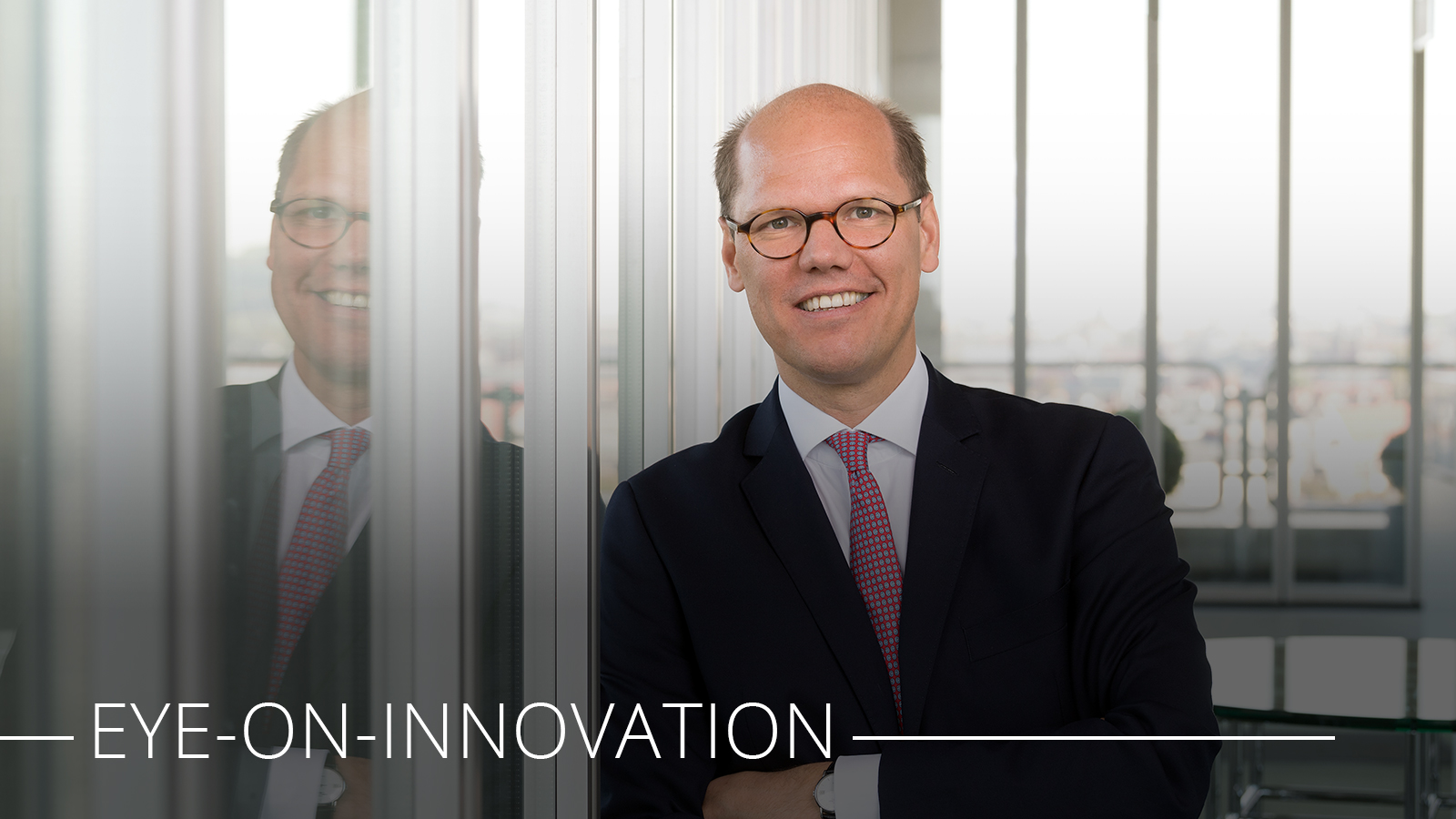Innovation, endpoints and education – what’s in store for pharma in future-healthcare?

As part of pharmaphorum’s ‘eye-on-innovation’ interview series, Paul Tunnah speaks to Bayer’s Chief Marketing Officer Pharmaceuticals, Sebastian Guth, on his views on how the synergy of pharma and digital health could play out in the years to come.
At this year’s eyeforpharma Barcelona conference, Bayer’s Chief Marketing Officer Pharmaceuticals Sebastian Guth, gave an inspiring keynote speech on how patients push the whole healthcare ecosystem to think differently, and how technology could improve health literacy, and patient outcomes. pharmaphorum’s CEO Paul Tunnah caught up with him at the event to find out more about the ‘sweet spot’ where pharma works with tech firms and patients to produce a new generation of therapies.
It’s obvious that drugs alone do not solve the health problems that society is facing.
For example, pharma companies are looking to link the latest drug developments with technology or use devices and IT to support the performance of existing therapies.
Digital therapeutics are also becoming reality, the first of which was approved by the FDA late last year, offering alternatives to drug therapy in mental health, but also beyond this in other types of disease.
Against this backdrop, Bayer’s Chief Marketing Officer Pharmaceuticals Sebastian Guth told the eyeforpharma conference in Barcelona that digitisation and pharma innovation need to be brought closer together.
Guth explained, “Historically we have focused on biology and chemistry. That was the paradigm which we worked. We are now taking that further. It’s a combination of biopharmaceuticals, engineering and IT, where I see the sweet spot of further innovation happening.”
But getting to that sweet spot will be a long, hard journey, Guth noted. One issue that could arise is how to match the regulatory, legal and policy framework with the technological advances in order to improve outcomes and enable patients to make informed decisions in relation to their own health condition.
“There is a long journey ahead of all of us. We’ve only scratched the surface on using things like machine learning to improve the way we work and how we develop and deliver medicines to patients. I’m convinced that technology will help – not only to enhance a patient’s health literacy, but to improve the system’s ability to get the right intervention to the right patient at the right time.”
Google or pharma?
The new approach will be a more holistic R&D methodology and regulatory framework, which will be fit for purpose whether the product is digital only, or a combination of a digital product and a pharmaceutical agent.
“It may not always be a pharmaceutical product as part of the offering. We have already seen the first digital therapeutics approved and I think we will see more of that,” stated Guth.
With large tech companies like Google becoming increasingly interested in health, there is a temptation to envisage a competition between pharma, representing the current approach to healthcare research, and these extremely rich and powerful newcomers.
But Guth says this will not be the case, adding that research-based pharmaceutical companies will increasingly partner with these firms to come up with better products and improved outcomes for patients.
“We do have a wealth of data which is longitudinal, well curated, interventional data, that many of those companies have not got at their fingertips.
“I think there is expertise that not only gives us a right to play but makes us an indispensable partner to many of these companies.”
To buy or not to buy?
From Bayer’s perspective this will probably lead to more collaborations with tech firms, rather than acquisitions. Competitors such as Roche have opted to part with billions to acquire digital health companies such as Flatiron, which has built up a valuable database of real world patient data. But the answer is not necessarily to buy digital health firms outright.
“At Bayer, we believe that collaborations will become increasingly important. I don’t think that this is a world where we necessarily need to own everything.”
Health literacy critical for improved outcomes
Patients will have an increasing role to play in this as technology will help raise awareness and knowledge about health, and about diseases, he said.
Guth said: “Health literacy is a necessary prerequisite to drive better outcomes. Informed and empowered patients will likely experience better outcomes than uninformed patients.
“We have an interest in driving health literacy and reducing the number of interventions that have little or no benefit. That will create the headroom for future innovation.”
With a more health-savvy population demanding higher standards, regulators and payers are struggling to keep pace, argued Guth. In some areas, such as gynaecology, there has been success in bringing together patients’ experiences to produce trial endpoints that work for regulators, payers, patients and doctors. “What patients expect from us is to involve them, and to enable them to manage their own health in order to achieve better outcomes.”
But this ‘joined up’ approach, which could be enabled by the data and insight gathered from a more informed patient population, is not apparent in other areas, such as cardiology.
Long-term view
These forces will lead to a very different-looking industry in the long term, says Guth. The industry’s expertise in biology and chemistry will serve as a strong foundation, but with engineering and IT playing an increasingly important role.
Bayer will be working with a range of different partners, outside of the familiar collaborations with biotech companies.
Pharma must be ready for this new way of working and change accordingly. Simply appointing a single person as a digital leader will not suffice and smacks of an outdated way of thinking, says Guth.
Instead of relying on a chief data officer, or similarly titled role, pharma companies must undergo a culture change to embrace the possibilities offered by the technological revolution, which Guth says is changing society as a whole in the same way as the invention of the printing press centuries ago.
“What I experience too often is people resorting back to what they know and talking about the many, many things that they could still achieve in sticking with today’s innovation paradigm. Breaking through the old concepts is the one thing that I would love to change. It will release tremendous energy and passion.”
About the interviewee:
Dr Sebastian Guth is Executive Vice President and Chief Marketing Officer for Bayer Pharmaceuticals. Additionally, he carries the operational and profit & loss responsibility of Bayer’s global Radiology Business Unit. He is a member of the Pharmaceuticals Executive Committee and Global Pharmaceuticals Development Committee.
Based in Berlin, Germany, he oversees global product strategy, marketing, market access and marketing operations for Bayer’s prescription pharmaceuticals portfolio.
Before assuming his current role at Bayer Pharmaceuticals, in October 2015, he was Chief Marketing Officer for Bayer’s General Medicine Business.
Previously he served as President & Chief Executive Officer of Bayer Yakuhin, Osaka, leading Bayer’s healthcare business in Japan.












